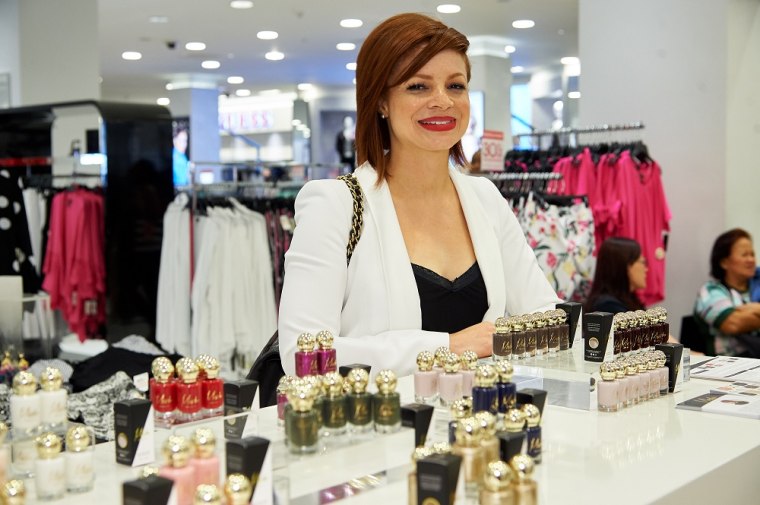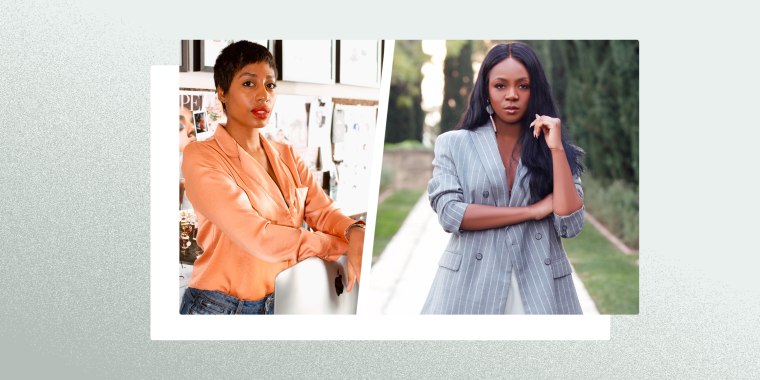Kitiya King's luxury, nontoxic nail polish brand, Mischo Beauty, has received numerous awards and been featured in leading fashion magazines, including Vogue and Elle. It's sold in a growing number of beauty boutiques across the country and King recently secured her first major retail partnership with Macy's.
But even after years of success, her company is still self-funded — a struggle many Black female business owners face.
"I know there are different ways to fund your business, whether it be institutional, through venture capitalists or loans, or angel investors, or fundraising or crowdfunding, but I just didn't have access to any of that," King, who lives in Washington, D.C., told TODAY. "I didn't have a network to give me a hundred thousand dollars to start my business. I didn't have a network that could put me in touch with venture capitalists. So I've been bootstrapping."

While Black female entrepreneurship is rapidly growing — in 2019, women of color opened more businesses than any other demographic, according to one report — they're historically underfunded. Businesses with CEOs who are women of color get less than 1% of venture capitalist funding each year, according to Forbes.
A new initiative aims to change that. Last week, Lauren Napier and Whitney Brown launched Consider Something Better, which calls on corporations to fund businesses owned by Black women.
Brown, creator of the digital platform Meet the Owner, said that in talking to Black business owners, she started to see a similarity in their stories: "The common denominator I found was that there was a lack of funding."
Through their initiative, Brown and Napier are calling on companies to donate $250,000 each to contribute to a goal of $5 million. King is one of the more than 300 Black women who have applied for funding. While they haven't received any commitments just yet, they've begun conversations with several corporations, Brown said.
Napier said teaming up with Brown was inspired by her own struggles while growing her business. She started her brand, Lauren Napier Beauty, with a tax refund check and a credit card inside her studio apartment in Manhattan. At times, her kitchen was full of bubble wrap and her bed piled high with products and packages ready to be shipped to customers.
"It was me pushing a grocery cart to the post office," Napier told TODAY. "There were times I was sleeping at a friend's house because my apartment was filled with boxes. It's hilarious and also sad because I went to the bank and they didn't understand my business. They didn't trust me with their money."
She's since expanded her business, known for its popular makeup remover wipes, into a global brand that's available in 22 countries. But she knows how much she would have benefited from funding in those early days, and she knows how much funding would help women like King. For starters, King, a single mom, wouldn’t have to work a 9-to-5 job in addition to running her business.
As protests against racial injustice continue across the country and people look for causes to support, Brown and Napier hope they'll take a moment to consider Black entrepreneurship.
"Police brutality is happening and it's visible and it's painful and it hurts to see, but what's more painful and damaging to our communities is our lack of financial independence and the inability to grow," Napier said, pointing to pay disparities and the decline in Black homeownership as other elements in the cycle of financial insecurity.
She said that by lifting up Black women in particular, entire communities will thrive.
"We are an industrious, creative people," Napier said. "We have had to be since the beginning. We have always overcome adversity. Imagine what we could do. I really think the investor community and the banking community need to take a hard look at investing in people of color, specifically Black women. It's important."

